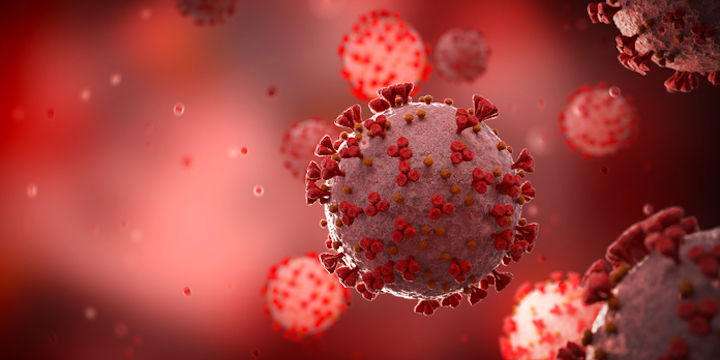Is blood group a risk factor for covid? Scientists had already noticed that people in group O were less vulnerable than those in groups A, B or AB to covid. But in a new study published on March 3 in the scientific journal Blood Advances, researchers from the American universities of Harvard and Emory go further. According to them, the coronavirus attacks more easily the respiratory cells of people in group A.
Focus on S protein
For this study, the researchers carried out experiments in vitro, on respiratory cells of groups A, B and O.
To fully understand their protocol, remember: SARS-CoV-2 has an S protein on its surface (for Spike). It attaches itself to receptors present on the surface of target cells, the ACE2 receptors.
This binding is possible thanks to a particular part of the S protein: the RBD for “receptor binding domain” or, in French, the receptor binding domain.
More affinities with group A
It is this area in particular that researchers have cloned and brought into contact with respiratory cells that carry ACE2 on their surface.
As a result, the RBDs of the virus had a strong preference for group A respiratory cells. In other words, viruses prefer to attach to – and therefore infect – the target cells of people in group A than groups B or O.
Why ? There is currently no answer to this question. Further studies are needed to understand this preference and to determine what role it plays in the covid epidemic.
Antibodies also play a role
“Our observation is not the only responsible mechanism (…) but it could explain part of the influence of the blood group on the infection by the covid“commented Dr. Sean Stowell, co-author of the study, in a press release from the American Society of Hematology.
This mechanism could in particular be added to that already demonstrated for people in group O. In this case, it was the antibodies, these defense molecules of the immune system, which were at play.
Indeed, people of group O have antibodies against groups A and B. And if a person of group O is infected by a patient of blood group A or B, the transmitted virus keeps traces of its passage through an organism A or B. It is therefore more easily detected by the anti A and anti B antibodies of group O, and the infection is blocked more effectively. This is not the case for either group A or group B.
Possible treatment options?
Unfortunately, the blood type is inherited and cannot be changed. Even if it is a risk factor for covid, there is therefore no way to act on it to reduce the risk of infection. But this discovery remains important because it could, according to the researchers, give avenues of preventive and curative treatment against covid.
 Cherry tomatoes contaminated with salmonella: 92 sick and 1 dead
Cherry tomatoes contaminated with salmonella: 92 sick and 1 dead  A better coaching method can make a person grow
A better coaching method can make a person grow  What is the method to prevent diabetes in children?
What is the method to prevent diabetes in children?  What are the effective factors in causing stomach ulcers?
What are the effective factors in causing stomach ulcers?  Why do embarrassing memories seem to appear at night?
Why do embarrassing memories seem to appear at night?  The amazing link between SARS-CoV-2 infection and newly started diabetes
The amazing link between SARS-CoV-2 infection and newly started diabetes  WHO says monkey pox is not a global emergency right now
WHO says monkey pox is not a global emergency right now  Single cell RNA sequencing uncovers new mechanisms of heart disease
Single cell RNA sequencing uncovers new mechanisms of heart disease  Hepatitis of unknown origin: 3 new deaths and 228 cases worldwide
Hepatitis of unknown origin: 3 new deaths and 228 cases worldwide 